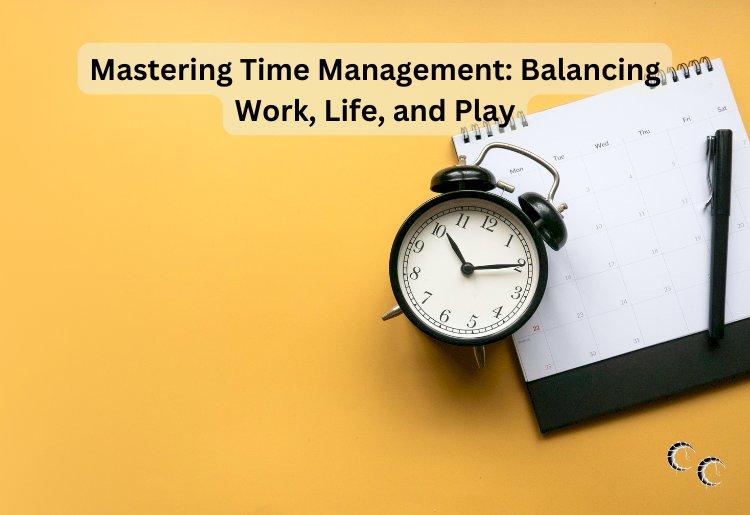Mastering Time Management: Balancing Work, Life, and Play

Effective time management is essential for maintaining a balanced lifestyle, fostering productivity, and avoiding burnout. By strategically organizing your day and prioritizing what matters most, you can achieve harmony between work, personal life, and leisure. Here are practical strategies to help you create a balanced schedule.
Prioritize Your Tasks
- Use the Eisenhower Matrix: Divide tasks into four categories: urgent and important, important but not urgent, urgent but not important, and neither urgent nor important. Focus on what truly matters.
- Set Clear Goals: Define daily, weekly, and long-term goals to keep your efforts aligned with your priorities.
Plan Ahead
- Create a Schedule: Use tools like planners, digital calendars, or apps to map out your day. Allocate time for work, personal responsibilities, and leisure.
- Time Block: Dedicate specific blocks of time to tasks and avoid multitasking, which can dilute your focus and efficiency.
Learn to Say No
- Respect your limits by declining tasks or commitments that don't align with your priorities. Saying no allows you to focus on what matters most.
Embrace Delegation
- At Work: Delegate tasks that others can handle, freeing up your time for high-priority responsibilities.
- At Home: Share household duties with family members or hire help for tasks like cleaning or grocery shopping.
Maintain a Work-Life Boundary
- Set Work Hours: Clearly define when your workday begins and ends. Avoid checking emails or engaging in work tasks during personal time.
- Create a Dedicated Workspace: If you work from home, designate a specific area for work to establish a physical boundary.
Incorporate Breaks
- Pomodoro Technique: Work for 25-minute intervals, followed by a 5-minute break. Take a longer break after four cycles to recharge.
- Step Away: Use breaks to stretch, walk, or engage in mindfulness exercises to reduce stress and maintain focus.
Allocate Time for Play
- Schedule activities that bring you joy and relaxation, such as hobbies, exercise, or socializing with friends and family. Play is essential for maintaining emotional well-being and creativity.
Avoid Overcommitment
- Be realistic about what you can accomplish in a day. Overloading your schedule leads to stress and diminished productivity.
- Leave some unstructured time in your day for unexpected tasks or moments of rest.
Leverage Technology
- Use apps like Trello, Asana, or Notion to manage tasks and projects efficiently.
- Automate repetitive tasks, like bill payments or email responses, to save time.
Monitor and Adjust
- Review Your Progress: At the end of each day or week, evaluate how well you managed your time. Identify what worked and where improvements are needed.
- Be Flexible: Life is unpredictable, so adapt your schedule when necessary without guilt.
Conclusion
Mastering time management requires intentionality, discipline, and self-awareness. By prioritizing tasks, setting boundaries, and making time for play, you can create a balanced schedule that supports productivity and well-being. Remember, time is a finite resource—use it wisely to live a fulfilling and harmonious life.






























